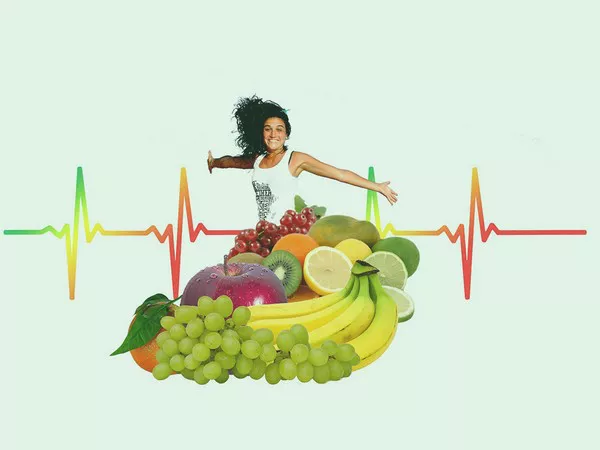A vegetarian diet is becoming increasingly popular due to its potential health benefits, environmental impact, and ethical considerations. However, one of the most common concerns among vegetarians is ensuring an adequate intake of protein, which is essential for various bodily functions, including muscle maintenance, immune system support, and hormone production. In this article, we will explore the best sources of protein for vegetarians and help them optimize protein intake.
SEE ALSO: What Meat Has the Most Protein: A Guide Vegetarians and Vegans Can Also Read
Protein and its Importance
Protein is composed of amino acids, which are the building blocks of our body. There are nine essential amino acids that the body cannot produce on its own and must be obtained through the diet. While animal-based foods provide all essential amino acids, vegetarians can also obtain them through a well-balanced diet.
Plant-Based Protein vs. Animal-Based Protein
Consuming plant-based protein offers several benefits compared to animal-based protein. Here are some of the key advantages:
1. Lower in Saturated Fat and Cholesterol
Plant-based protein sources are typically lower in saturated fat and cholesterol compared to animal-based sources. High intake of saturated fat and cholesterol has been linked to an increased risk of heart disease and other cardiovascular problems. Choosing plant-based proteins can help promote heart health and reduce the risk of cardiovascular diseases.
2. Rich in Fiber and Nutrients
Plant-based protein sources often come with an abundance of fiber, vitamins, minerals, and antioxidants. These nutrients are essential for overall health, digestion, and immune function. Whole plant foods like legumes, nuts, seeds, and whole grains provide a wide range of nutrients that contribute to improved well-being.
3. Reduced Risk of Chronic Diseases
Studies have shown that individuals following a plant-based diet tend to have a lower risk of developing chronic diseases such as type 2 diabetes, certain cancers, and hypertension. The nutrient-rich nature of plant-based proteins contributes to better health outcomes.
4. Environmentally Sustainable
Plant-based protein sources have a significantly lower environmental impact compared to animal-based sources. Producing plant-based proteins typically requires less water, land, and energy, and generates fewer greenhouse gas emissions. Choosing plant-based options can contribute to a more sustainable and environmentally friendly food system.
5. Supports Weight Management
Plant-based proteins are often lower in calories and higher in fiber, which can promote feelings of fullness and satiety. Incorporating more plant-based proteins into the diet can help with weight management and weight loss, if desired, by reducing overall calorie intake.
6. Suitable for Various Dietary Preferences and Restrictions
Plant-based proteins are versatile and can accommodate various dietary preferences and restrictions. They are suitable for vegetarians, vegans, individuals with lactose intolerance or dairy allergies, and those following religious or cultural dietary guidelines.
7. Lower Risk of Antibiotic Resistance
Animal agriculture often relies on the use of antibiotics in livestock to promote growth and prevent diseases. Overuse of antibiotics in animals has contributed to antibiotic resistance, a major global health concern. By choosing plant-based proteins, consumers can help reduce the demand for antibiotics in the food system.
Plant-based Protein Sources
There are typical sources of plant-based protein:
1. Legumes: Lentils, chickpeas, black beans, and soybeans are rich sources of protein and provide a substantial amount of fiber, vitamins, and minerals.
2. Nuts and Seeds: Almonds, chia seeds, flaxseeds, and pumpkin seeds are excellent sources of protein and healthy fats.
3. Whole Grains: Quinoa, brown rice, oats, and whole wheat products offer a good amount of protein and other nutrients.
4. Tofu and Tempeh: Derived from soybeans, these versatile plant-based protein sources are widely used in vegetarian cooking.
5. Seitan: Made from wheat gluten, seitan is a high-protein meat substitute and can be used in various dishes.
Combining Proteins for Optimal Nutrition
It is essential for vegetarians to understand how to combine different plant-based protein sources to ensure they obtain all essential amino acids. The concept of “complementary proteins” involves pairing foods that, when combined, provide a complete set of amino acids. For instance, combining legumes with grains or nuts with legumes can create complementary proteins and enhance the nutritional value of the meal.
Here are some examples of high-protein meals for vegetarians:
1. Quinoa and Black Bean Salad:
Cooked quinoa
Black beans
Chopped vegetables (bell peppers, cucumber, cherry tomatoes)
Fresh cilantro
Avocado slices
Lime juice dressing (lime juice, olive oil, salt, pepper)
Optional: Add a sprinkle of feta cheese or diced tofu for extra protein
2. Chickpea and Vegetable Stir-Fry:
Chickpeas (canned or cooked from dried)
Mixed stir-fry vegetables (broccoli, carrots, snap peas, bell peppers)
Garlic and ginger for flavor
Low-sodium soy sauce or teriyaki sauce
Serve over brown rice or whole wheat noodles
3. Lentil and Spinach Curry:
Red or green lentils (cooked)
Chopped spinach
Diced tomatoes
Coconut milk or vegetable broth
Curry spices (turmeric, cumin, coriander, garam masala)
Served with brown rice or naan bread
4. Tofu and Vegetable Stir-Fry:
Cubed firm tofu
Mixed stir-fry vegetables (broccoli, carrots, mushrooms, snow peas)
Garlic and ginger for flavor
Sauce: Mix soy sauce, sesame oil, rice vinegar, and a touch of honey or agave syrup
Serve over quinoa or whole grain noodles
5. Chickpea and Avocado Sandwich:
Chickpea salad (mashed chickpeas, diced celery, red onion, lemon juice, and vegan mayo)
Sliced avocado
Lettuce and tomato
Whole grain bread or wraps
6. Spinach and Feta Omelette:
Whisked eggs or egg substitute
Chopped spinach and cherry tomatoes
Crumbled feta cheese
Cooked in olive oil or cooking spray
7. Peanut Butter and Banana Smoothie:
Plant-based milk (almond, soy, or oat milk)
Banana
Natural peanut butter
Chia seeds or flaxseeds for added nutrition
Optional: Add a scoop of plant-based protein powder for an extra protein boost
8. Vegan Lentil Shepherd’s Pie:
Cooked lentils
Sautéed onions, carrots, and peas
Mashed sweet potatoes or cauliflower for the topping
Baked until golden and bubbly
9. Seitan Stir-Fry:
Sliced seitan (mock meat made from wheat gluten)
Mixed stir-fry vegetables (broccoli, bell peppers, carrots)
Garlic and ginger for flavor
Stir-fry sauce (soy sauce, hoisin sauce, and a dash of chili sauce)
Serve over brown rice or quinoa
10. Greek Chickpea Salad:
Chickpeas
Chopped cucumber, tomatoes, and red onion
Kalamata olives and crumbled feta cheese (or vegan feta)
Olive oil and lemon juice dressing
Optional: Add a sprinkle of oregano for extra flavor
Potential Deficiencies and Challenges for Vegetarians
While a well-planned plant-based diet can provide all the essential nutrients, there are some potential deficiencies and challenges that vegetarians may face when relying solely on plant-based protein sources. Being aware of these potential issues and taking proactive steps to address them can help ensure a nutritionally balanced vegetarian diet. Some common concerns include:
1. Protein Quality and Quantity
Plant-based proteins can be lower in some essential amino acids compared to animal-based proteins. However, by consuming a diverse array of plant-based protein sources and pairing complementary proteins (e.g., legumes with grains), vegetarians can obtain all essential amino acids. Paying attention to the quantity of protein consumed is also crucial to meet individual protein needs.
2. Vitamin B12 Deficiency
Vitamin B12 is primarily found in animal-based foods, and its deficiency can lead to anemia and nervous system problems. Vegetarians must be vigilant about obtaining adequate B12 from fortified foods like plant-based milk or cereals or through B12 supplements.
3. Iron Absorption
Plant-based sources of iron (non-heme iron) are not as readily absorbed by the body as heme iron found in animal-based foods. To enhance iron absorption, vegetarians can pair iron-rich foods with vitamin C sources, such as citrus fruits or bell peppers.
4. Calcium Intake
Dairy products are a significant source of calcium in many diets, but vegetarians can obtain calcium from fortified plant-based milk, tofu, and leafy greens. Ensuring an adequate calcium intake is essential for bone health.
5. Omega-3 Fatty Acids
Omega-3 fatty acids, particularly DHA and EPA, are primarily found in fish and seafood. While plant-based sources like flaxseeds and walnuts provide ALA (a precursor to DHA and EPA), the conversion rate to active forms is limited. Vegetarians may consider adding an algae-based DHA supplement to ensure sufficient intake.
6. Zinc and Iodine Intake
Zinc and iodine are essential minerals that vegetarians may have difficulty obtaining in sufficient quantities, as these are often found in high amounts in animal-based foods. Including zinc-rich foods like legumes, nuts, and whole grains and iodine-rich foods like seaweed or iodized salt can help address these concerns.
7. Fatty Acid Profile
Plant-based diets can be low in saturated fat, which is generally beneficial, but it’s essential to include sources of healthy fats like avocados, nuts, seeds, and olive oil to ensure an adequate intake of essential fatty acids.
8. Energy and Nutrient Density
Plant-based diets, especially if not well-planned, may be lower in energy density, which means individuals may need to consume larger volumes of food to meet their caloric needs. Focusing on nutrient-dense foods can help ensure that necessary vitamins and minerals are obtained.
9. Special Life Stages
Pregnant or breastfeeding vegetarians, children, and the elderly may have specific nutrient requirements that require careful attention to ensure optimal health.
Addressing Nutritional Gaps for Vegetarians
It’s important for vegetarians to take the nutrition below into special concerns:
1. Vitamin B12: Vitamin B12 is primarily found in animal-based foods, and vegetarians are at risk of deficiency. Including fortified foods like plant-based milk or cereals or taking B12 supplements is crucial.
2. Iron: Plant-based sources of iron, such as spinach and lentils, are available, but the body absorbs iron from plant foods less efficiently than from animal sources. Consuming vitamin C-rich foods alongside iron sources can enhance absorption.
3. Calcium: Dairy products are the most common source of calcium, but vegetarians can obtain it from fortified plant-based milk, tofu, and leafy greens.
4. Omega-3 Fatty Acids: Incorporating flaxseeds, chia seeds, walnuts, and seaweed in the diet can help vegetarians obtain omega-3 fatty acids.
Conclusion
A well-planned vegetarian diet can provide all the necessary nutrients, including protein, for optimal health and well-being. By incorporating a variety of plant-based protein sources, complementing proteins, and addressing potential nutritional gaps, vegetarians can thrive and enjoy the benefits of a sustainable and compassionate dietary lifestyle. As always, it is advisable to consult with a registered dietitian or healthcare professional to ensure individual dietary needs are met. With the right knowledge and choices, vegetarian diets can be a healthy and fulfilling option for people of all ages and backgrounds.
[inline_related_posts title=”Related Topics” title_align=”left” style=”list” number=”3″ align=”none” ids=”1257,1148,1057″ by=”categories” orderby=”rand” order=”DESC” hide_thumb=”no” thumb_right=”no” views=”no” date=”yes” grid_columns=”1″ post_type=”” tax=””]


































